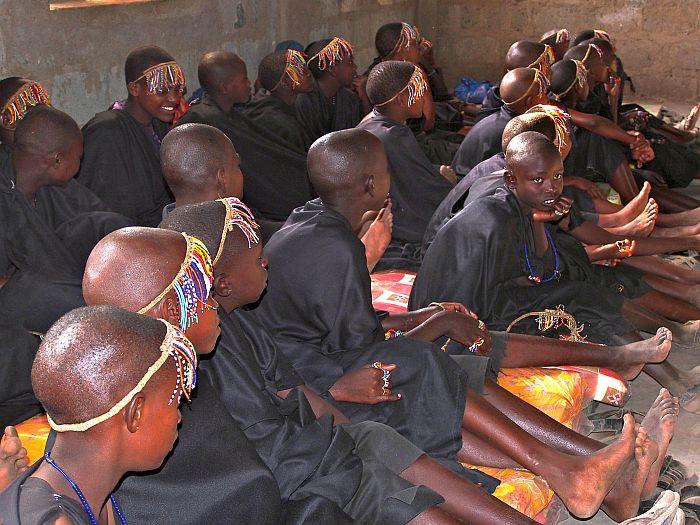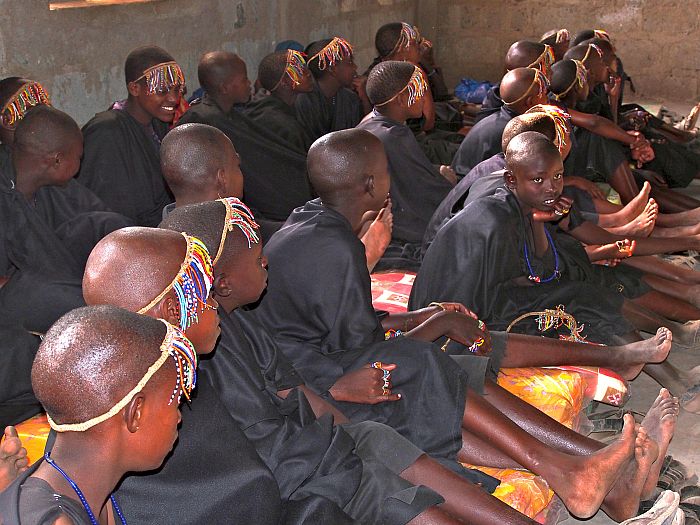The Maasai tribe of Kenya has shown the traditional rite of passage for girls of female circumcision can be replaced with a new tradition.
The Alternative Rite of Passage campaign began with Africa Schools of Kenya (ASK) in the Esiteti region of Kenya last year. The Maasai of Esiteti are a model for the rest of the country and the continent, says Teri Gabrielsen, ASK executive director.
ASK has launched a 42-day crowdsourcing campaign to raise funds for the expansion of Alternative Rite of Passage.
The first ceremony was held in August 2012 with 52 Maasai girls becoming women without “cutting.”
Gabrielsen recalled the words of Nelly, a 14-year-old Maasai girl.
“I was going to be circumcised, but I told my dad all the negative things about FGM [female genital mutilation] and my dad agreed. He said, ‘I won’t circumcise you and I wont circumcise your sisters either.’”
Three times a year girls come home from boarding schools and are at risk of being circumcised or married off.
Approximately 150 girls will reach puberty this year in Esiteti, and ASK will hold three ceremonies each year. The two-day alternative rite ceremony takes place in one of the classrooms at the Esiteti School.
The goal of ASK’s campaign is to raise $50,000 to sustain Alternative Rite of Passage programs for at least five years, establishing the groundwork for tribes to carry them on independently.
“ASK has developed many educational programs for the community of Esiteti, but never have we been involved with a program as exciting as this one,” Gabrielsen said. “In the eyes of the Esiteti community, once the pilot program was in place, their girls were seen as adults and safeguarded from FGM.”
Phides Mukishoi, head mistress of ASK’s Esiteti School, said she is proud to be a part of ASK.
“I am happy to be training and teaching the girls about health and education,” Mukishoi said. “When they look at me, they see a Maasai woman who is educated, and it makes them proud to see me care for them.”
“I value Phides for her dedication to working with the girls every day and night, living away from her own family in not-so-suitable dwellings in order to protect and work with the girls,” Gabrielsen said. “She is happy to do the work.”






